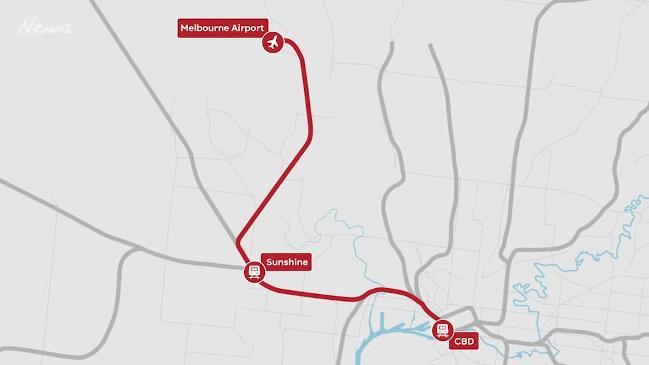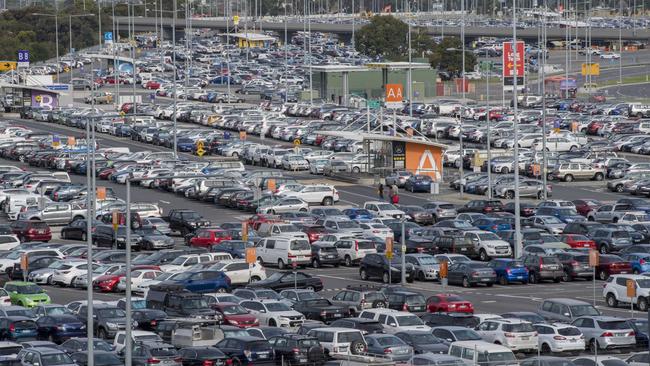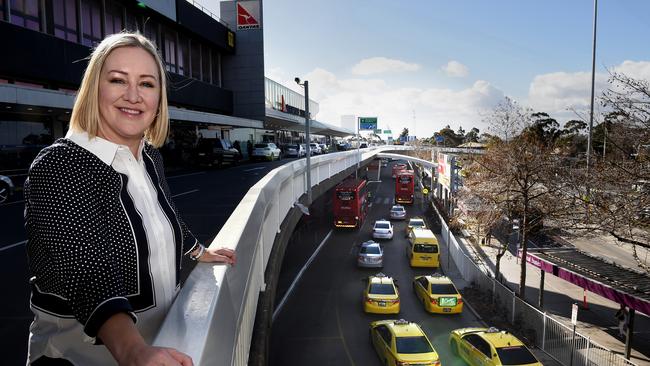Melbourne Airport parking revenue rises to $150m in ‘gold mine’
Melbourne Airport has been stinging car park users $410,600 a day in fees in a cash grab branded a “money-making gold mine” by the Consumer Action Law Centre.

VIC News
Don't miss out on the headlines from VIC News. Followed categories will be added to My News.
Melbourne Airport has been sucking $410,600 a day from car park users.
Tullamarine’s parking revenue climbed to $149.9 million in 2017-18 — up $4.8 million on the previous year, the Herald Sun can reveal.
It clawed 56.5c profit from each dollar pumped in, before interest and tax.
AIRPORT ON-TIME NUMBERS SET TO WORSEN
TECH GLITCH AT AIRPORT PASSPORT CONTROL
MOTORISTS STOP ON FREEWAY TO DODGE AIRPORT PARKING
Operating profit hit $84.8 million in 2017-18, down $1.9 million on the year earlier.
Consumer Action Law Centre chief executive Gerard Brody said the airport’s car parks were a “money-making gold mine”.
“What we need are regulated prices so we know that they’re fair,” Mr Brody said.
“And the sooner we get the airport train link to give real choice, the better.”

Airport parking and ground access chief Lorie Argus denied profit was excessive, as money was needed to upgrade roads in the precinct. “We are putting hundreds of millions of dollars back into the road network over the next five years to reduce congestion and give a better traveller experience,” Ms Argus said.
More than half of the airport’s parking revenue is raked in at its terminal car parks.
Short-term “drive-up” rates were reduced last March in the face of persistent criticism over sky-high charges.
Drivers pay $12 for an hour, $24 for three hours, and $51 for a day, although online rates are cheaper.
A free 10-minute passenger pick-up zone was also introduced. Long-term parking fees had remained unchanged for four years, Ms Argus said.

Most revenue growth was from premium and valet parking. While more people were parking at the airport for short stays of one to two days, fewer were for longer periods such as a week, which is believed to have been driven by a more competitive environment due to ride-share services such as Uber.
Earlier this month, a Productivity Commission draft report warned the nation’s busiest airports were not required to share enough information to determine whether motorists and passengers were getting a raw deal.
While some Melbourne Airport parking fees had fallen over six years, taxi access fees more than doubled, and it charged the most expensive access fee of $4.50 for ride-sharing services.
The commission said while consumers resented the price of parking, airports had not “systematically exercised their market power to the detriment of the community”.


